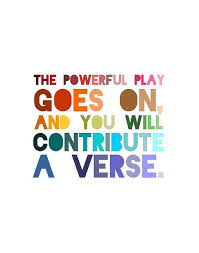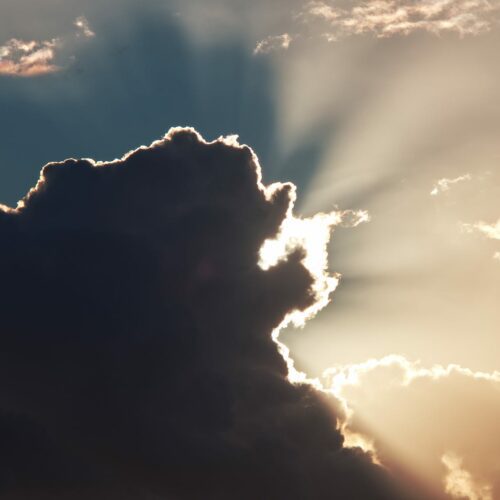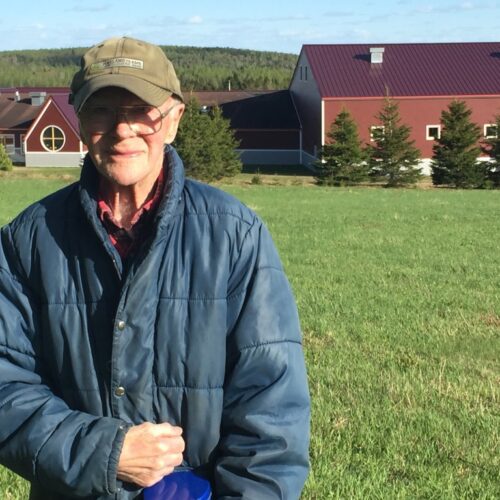 Four weeks ago, I sat in a stale-smelling, artificially-lit waiting area of Maine Medical center. It was 6:30 am and my first-born child had just been wheeled into surgery.
Four weeks ago, I sat in a stale-smelling, artificially-lit waiting area of Maine Medical center. It was 6:30 am and my first-born child had just been wheeled into surgery.
First child. First surgery.
I was told – first patently, then patronizingly – that I had “no reason” to worry. The arrogant and emotionally-stunted – albeit brilliant, or so I was told repeatedly – surgeon insisted my son’s surgery was a non-event and nothing to be worried about, and attempted to mollify my concerns and questions by recounting his vast years of experience, reminding me that he could work at any hospital in the country. He was that brilliant, that good.
In one fell swoop, this surgeon-cum-God informed me that not only was I wrong to be worried on that cold medically-induced morning, but I was also remiss in not understanding how lucky I was to have him performing the operation on my son. Wrong on two counts, I was. Yup, we were mixing like peanut butter and mustard on cinnamon-raisin bread.
In the large scheme of things, he was probably right. This wasn’t a big deal, was it? Four months prior, my son had the misfortune of getting a rather large splinter lodged in his foot when he slid across the length of his friend’s hardwood kitchen floor in socks. Unbeknownst to us, a piece remained after the initial extrication, and continued to fester – stubbornly – in the bottom of his foot, a fat and fetid chunk of dirty wood suspended in a large pocket of pus (lovely, right?) So yea, I guess a case could be made for it not being a big deal. After all, it wasn’t his heart or his brain being cut open. He didn’t have cancer. Nothing was broken, really.
My otherwise healthy eleven year old son was having a one-inch piece of wood surgically removed from the bottom of his foot. The foot that I grew inside my body. From scratch. The one that had never been cut open before by a surgeon’s knife.
I get how in the large scheme of things, I ought not to have been concerned. But here’s the thing: that morning in the hospital – and in the days leading up to it – I wasn’t living in the larger scheme. I was living in my scheme. The one where I had the right to worry. The one where worrying was a normal reaction. The one where putting my child under with general anesthesia and signing a waiver that if something went wrong it wasn’t the hospitals fault was a very big deal.
But, sadly, you know what I did when faced with this reaction from the doctor? I allowed myself to be shamed and ultimately silenced. I’d like to say it was unconscious on my part, but I’d be lying and well, let’s just not do that here. Truth be told, I actively participated in stepping down in the face of a bully with a scalpel who was deigning to care for my child, despite his annoyance with me as his unfortunate mother.
I blamed it on my pediatrician, the DO with whom I had entrusted my children’s care for nearly twelve years. The one who listened compassionately and offered the perfect blend of head and heart, traditional and alternative care, listening and counseling. The one who has assured me that I had a right to ask questions and encouraged me to be resourceful and gather information and options until I had answers. The one who validated that it was, in fact, my job to advocate for my child. The one that told me to listen to my instincts. The one who told me it’s not a crazy outlandish notion to want to feel that you can trust someone with your child’s life.
But instead, I got out the flog and started beating myself with it (for shame, Lael!) I told myself I was spoiled and had come to expect too much from doctors. I told myself that most surgeons were like that. I told myself that they had to be that way, and that it made them better when they were not caught up in the emotion of it all. I told myself that I had no reason to complain because there are plenty of parents out there every day with real reasons to worry. It’s all fuzzy to me now, but I believe I even used words like “silly” and “over-reacting” and “hormonal” in this internal rant.
I essentially told myself to shut the fuck up. And I did.
They wheeled my son off for surgery and I sat down in the doughy and stained chair to wait. Resigned, I picked up a newspaper and there was the news that Robin Williams had just ended his life the day before. That was all it took. I burst out into sobs, days of frustration mixing with worry and angst and grief at such a tragic loss. Because you see, like many of you, I grew up with Mork. I moved onto him after the Fonz wasn’t cool anymore. My friends and I actually said “Nanoo-nanoo” and I never did get, but oh my, did I want a pair of those rainbow suspenders. Then, as an adult, I got to appreciate his intellectual brilliance in addition to his artistic talent and timing, marveling at how smart he had to be deliver that fantastic political-cultural-comical shit so fast and furious. It was dazzling. And then he could switch gears and deliver these heart-felt dramatic performances. Mind blowing, he was.
And now he’s gone. And I’m crying.
Fast forward a week, and my son is at home with me, bandaged foot (minus the splinter) propped up on the couch. Admittedly, I used that convalescing time to go on a bit of a Robin Williams movie bender. It was cold and raining outside. We both love movies. I had been holding out watching Dead Poets Society with him, though, because it had been so long since I’d seen it I couldn’t recall if it was appropriate (it wasn’t). And how ironic, with the suicide theme. But it a conversation is sparked for us about education, and how the best moments of learning can feel so amazing – so alive. I play for him this scene where Robin Williams’s character, John Keating illustrates the power of a poem (Walt Whitman’s Oh Me, Oh Life) to evoke desire, to ignite dreams, to call forth inspired action.
We start talking about his move into middle school in a few weeks and how this new community he was about to enter favors an expeditionary model for learning. I smile, knowing that he’s about to be introduced to one of my favorite ways to learn – the kind of experiences that are electrically-charged, powered by an entire community, shared freely like a productive virus, and entirely memorable. The kind of experience that sneak up and teach you without realizing you’re learning. I start to get more and more animated (frothy mouthed at this point, I’m sure) about how awesome learning feels when it’s charged with excitement, possibility and a sense of adventure.
We talk about that line from Walt Whitman’s poem: “The powerful play goes on and you may contribute a verse” and what that means. The gift of a life. The choice that is ours to make. Daily. The footprint that is your distinct mark to leave on this world. Your verse – a legacy, an impression, a contribution. All yours. For us.
The powerful play goes on and you may contribute a verse.
Then I ask him the same question Robin Williams asks his students in that scene: What will your verse be?
As a side note – and an ironic twist of fate – Apple used the voice-over from that same Dead Poet’s clip when they launched their iPod Air TV ad campaigns back in January of this year. Gives me chills watching it. Every. Time. It describes why I do what I do in the world. All those verses just waiting to be written…or not. Frothy stuff.
As another side note, I’m fairly certain most of that conversation I had with my son went over his head. I’m also relatively sure it had nothing to do with him and everything to do with me. Thankfully, wise and gracious kid that he is, I think he got that impression, too (the frothy spittle probably gave me away…), and lucky me, he didn’t make a big deal about it.
But here’s what I’ve concluded having come out the other side of living that story: it is a big deal.
My verse. And contributing it to the play we are all living.
That’s what I traded in when I told myself to shut the fuck up that morning. That’s what I thwarted when I silenced myself with shame. That’s what I started to give up, to hand over when I trash-talked my instincts and mocked my needs.
My verse. My voice.
It’s not “silly”, it’s honest. I wasn’t being “hormonal”, I was experiencing blatant sexism. I wasn’t “over-reacting”, I was being bullied and feeling invisible.
So thank you, Robin. For reminding me of the gift I – we all, each one of us – have been given. And thank you for reminding me it is – and has always been – my choice as to how I use it. Or don’t. Thank you for making me laugh first, and cry later, which helped me to stand up a bit taller and feel a little lighter. Thank you for asking me – us all – that question time and time again, which serves as a reminder that we can choose to write that verse with each new day.
I know what my verse will be.




